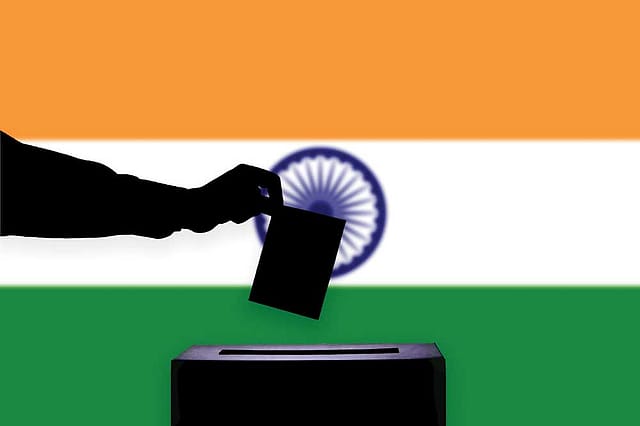Crying Wolf

MARTIN WOLF, CHIEF economics commentator at Britain's Financial Times, believes India is an illiberal democracy. In the first part of his two-part column, Wolf examined India as a "rising great power". My previous column dealt with that.
In the second part of his column, Wolf turned his attention to India's democracy. Like many Western writers, Wolf relies on the methodology of Freedom House, the US think-tank which puts Indian democracy at the same level as Hungary, a conclusion Wolf cites with relish.
Realising, however, that endorsing Freedom House's comparison of Indian democracy with Hungary's would damage the credibility of his analysis, Wolf changes gears. "As India's polity has become less liberal," he says, "its government has become more effective."
Wolf then discovers key World Bank indicators that "show political stability, control of corruption and regulatory quality have improved since Narendra Modi became prime minister."
Disappointed with the positive World Bank report, Wolf turns to more reliable sources—known critics of the Narendra Modi government.
First up is Ashutosh Varshney of Brown University. Wolf quotes him with delight: "Varshney's hypothesis is that political ideology played a central role in first creating the democracy and now weakening it. The founders of independent India believed in democracy. Over time, as its politics became more fragmented, politicians thought democracy was in their interest, too, since it allowed them to hope to fight another day. But today's Hindu nationalists have a different point of view: for them, a true Indian must be a Hindu. Their critics are 'anti-national' and so inherently treasonous."
AIming High
20 Feb 2026 - Vol 04 | Issue 59
India joins the Artificial Intelligence revolution with gusto
This is a discredited trope and it serves Wolf's analysis poorly. In a country where Hindus are nearly 80 per cent of the population, over half don't vote for Modi and the Bharatiya Janata Party (BJP). Hindus are far too diverse to be treated as a monolith. Muslims vote as a bloc. Hindus don't. If they did, BJP would be permanently in power.
Wolf blunders on. "The government can now designate any individual a terrorist based on personal writings, speeches, social media posts, or literature found in their possession," he writes. "According to Rahul Mukerji (a professor of political science at Heidelberg University), close to 17,000 civil society organisations have been denied registration or renewal since 2015. Moreover, minority rights, especially of Muslims, are under attack, not just through the law or administrative decrees, but also through vigilante violence."
Wolf makes two factual errors and one error of judgement. The first error is the sweeping generalisation that any individual can be designated a terrorist based on personal writings, speeches, etc. In fact, such arrests are rare. They involve individuals with known links with terror groups. Besides, those arrested have recourse to courts.
The second factual error is believing minority rights are "under attack". Wolf provides no evidence of this because there isn't any. Muslims are in fact protected by laws that are weighed in their favour. For example, Muslims enjoy Shariat personal law on marriage, divorce, adoption, succession and inheritance. Hindu personal laws have long been codified. Muslims can't follow Shariat law in Britain, where Wolf lives and works. And yet, Wolf believes Muslims' rights "are under attack" in India.
Wolf's third error is of judgement. When quoting Rahul Mukherji on 17,000 civil society organisations being denied registration or renewal since 2015, Wolf doesn't reveal that the bulk of these 17,000 NGOs (out of over 3.3 million registered NGOs in India) were in default. The default occurred over two issues: one, they received foreign funding violating the Foreign Contribution Regulation Act (FCRA); and two, they did not file their annual returns, triggering de-registration.
Wolf continues his error-prone column: "Majoritarians argue that they are entitled to do what they wish because they won. But a dictatorship of the majority is still a dictatorship. Moreover, without freedom of association and opinion, an opposition cannot function."
A dictatorship of the majority? An opposition without freedom of association and opinion? Even Wolf knows how weak that line of argument is. And indeed at the end of his two-part column, Wolf recognises that he has got things wrong but doesn't know quite what and quite how.
So, he ends with a conciliatory shrug: "Those who worry about this will be reminded that Hindus are highly tolerant. According to a 2021 study of religious attitudes by the Pew Foundation, 85 per cent of Hindus (who are 80 per cent of the population) believe that 'respecting all religions is very important to being truly Indian'."
